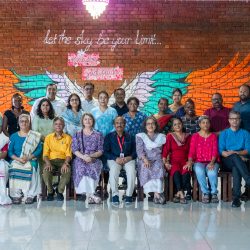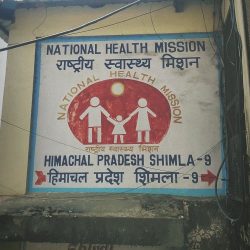Why should you see us differently?
Sumitha T. S., Project Officer at Pallium India, writes:
On 28 & 29 October, we conducted a two-day workshop at Sahodaran Community Oriented Health Development (SCOHD), Puducherry, to understand and address the needs of transgenders, and to introduce the concepts of palliative care among them. The workshop is a step towards ensuring we’re “leaving no one behind”.
(Read about the workshop here: https://palliumindia.live-website.com/2018/10/reinforcing-leave-no-one-behind-palliative-care-reaches-out-to-transgenders/)
I would like to share an experience from the workshop, that touched me deeply. The group that came on the second day was older than the group that came on the first day. It was difficult for them to open up and their problems were different from that of the first group. When we started the group discussion, I joined a team of eight members. They talked about discrimination, stigma and accessibility issues. But the person who sat near me, well dressed in a saree and who appeared to be healthy, said, “I am all alone at home. I do not have anybody with me, for me to take care of or to take care of me. People including health care professionals approach us with hatred. If you get a wound, you bleed red, I too bleed red and not green; and then why should you see us differently? We are also human beings. I am HIV positive, I am taking medicines, and all that I get from the ration shop is a fixed quantity of rice and nothing else. I get a small pension and that’s how I survive.”
This is not the only story that I wish to narrate, but this is the shortest. Everyone had similar experiences. Loneliness, hopelessness and substance abuse were explicit among the group.
Friends, it is high time for us to realize that health care, including palliative care, must reach every human being in serious health related suffering irrespective of their gender or sexual orientation – they too bleed red, just as we do. Let me remind you that the 2017 Lancet Commission Report on Palliative Care mentions the need to develop access to mental health professionals. Literature review suggest that LGBTQI are at high risk of depression, anxiety, substance abuse and suicidal tendencies. This is the reason that Dr Seema Rao, an expert both in palliative care and psychiatry, has joined us as our resource person. At the workshop, we listened to only about sixty out of the 487,803 LGBTQI people (Census 11) in our country. Let us try to listen to each one of them and understand their needs.





I must appreciate pallium India for arranging this workshop which gives message of the importance of palliative care for the patients with serious ailments, specially suffering from cancer.. Palliative Care enhances the quality of life and realisation of the beauty of life. Palliative Care should reach out many patients.For this awareness mission should be sped up